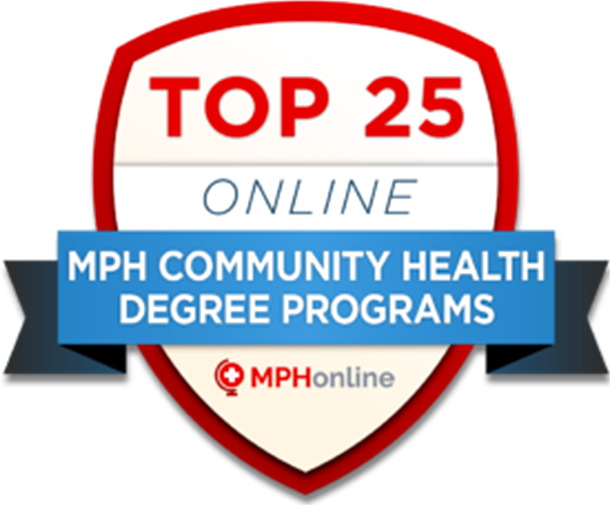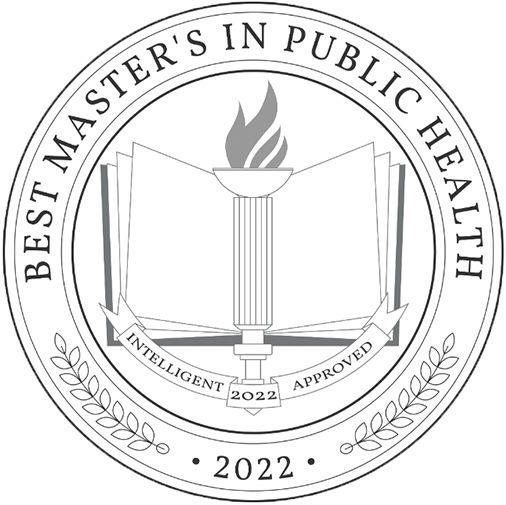Career outlook
The Bureau of Labor Statistics predicts that health educators and community health workers will experience a significant growth in employment, with a projected increase of 13 percent from 2019 to 2029, which is much faster than the average for all occupations. Similarly, the employment of epidemiologists is expected to grow faster than the average for all occupations, with a projected increase of 5 percent from 2019 to 2029.
This is driven by an aging population, increasing healthcare costs, and a growing focus on prevention and population health.
Get Started Today
World health is in your hands.
If you’re interested in a career with the World Health Organization – which requires a postgraduate specialization in a health- or management-related field for its higher-grade positions – then this degree is perfect for you.
You’ll extensively study and discuss:
- Current Issues in Health Education
- Environmental Health
- Advanced Concepts of Health Behavior
- Cultural Issues in Healthcare
- Program Planning and Evaluation
- Curriculum Development in Health Education
- Advanced Biostatistics for the Health Sciences
- Administration, Supervision and Consultation in Health Education
Request More Info
Why you'll love us.
- NO TEMPLATES, EVER.
At CSUN, we don't fill courses. We build them, entirely from scratch, each and every time we launch a program. This leads to a unique education, with real and lasting outcomes in your career.
- EXPERT INSTRUCTION AND DESIGN.
Our world-class faculty design and teach all courses, helping you gain today’s most in-demand skills – and bringing the industry directly to you.
- GROUP-POWERED LEARNING.
When you enroll, we place you in a small, interactive group of peers from diverse organizations and industries. And from day one to graduation, you’ll learn and grow together.
- VIP SUPPORT.
As you earn your education, we’ll stay with you every step of the way, offering close, personal support when and where you need it.
Request More Info
Overview
Never has good public health been a more urgent need. Health care agencies are aggressively recruiting graduates of MPH programs, who can provide timely and credible health information to the public – about everything from pandemics to food programs.
Designed in collaboration with the College of Health and Human Development, CSUN’s MPH program is an ideal choice for individuals seeking to enter or advance in the field.
Public health encompasses a wide range of careers in which professionals share the common goal of protecting human health through education, promotion of healthy lifestyles, and research in the areas of disease and injury prevention.
Request More Info
Frequently Asked Questions (FAQs)
Question: How many hours a week should I plan to dedicate to classes?
Answer: Credit-bearing programs conform to Carnegie hours (i.e., one credit equals one hour of class time, plus two hours of homework). Our programs usually have six to nine credits per term. Nine credits equals 27 hours a week dedicated to classes.
Question: After I submit my application, when will I receive a response about an admit decision?
Answer: Admission decisions are typically made four to eight weeks after the complete admission packet is submitted, including transcripts and all required supplemental documents.
Question: What is the typical class profile?
Answer: Students are professionals, who typically have been working two to five years. Usually, they’re in their mid-20’s to mid-30’s. Many students have families and work/life commitments.
Question: What are alumni doing? What are the post-graduation data?
Answer: Some alumni work at public health agencies, do promotions at their current organizations, or work for the USDA WIC program or other food agencies.
Our MPH graduates are hired at local, county and state health departments; health-based nonprofits like the American Heart Association or American Cancer Society; the health education or community health division of hospitals such as Kaiser Permanente, Cedars Sinai, Children’s Hospital Los Angeles; government positions such as at the CDC (Centers for Disease Control and Prevention), NIH (National Institutes of Health), etc.
For additional questions and answers, please visit our Frequently Asked Questions page.
Ready to Learn More?







